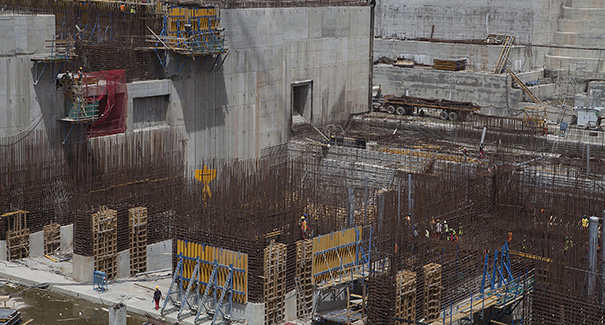One of the tragedies of the U.S.-Egyptian relationship is that American policymakers often can do little to protect U.S. interests without the active cooperation of Egyptian policymakers, who tend to be anything but cooperative.
The dispute between Egypt, Ethiopia, and other Nile riparian countries over the Grand Ethiopian Renaissance Dam (GERD) may represent one of the few exceptions where U.S. involvement would be both welcome and potentially impactful. Egypt’s concerns about the GERD stem from its location in Ethiopia on the Blue Nile, one of two major Nile tributaries. Egyptian access to its customary share of the river is viewed as an existential issue. The Nile provides over 90 percent of Egypt’s fresh water, is crucial to an agricultural sector that employs 28 percent of the workforce, and is a major source of energy, with the Aswan High Dam alone generating 10 percent of the country’s electricity.
As one of the most water-dependent countries in the world, Egypt relies on developments outside its borders, which can have a devastating effect on its water security. With 86 percent of Nile waters coming from the Blue Nile, Egypt has reason to be anxious about Ethiopia’s plans. The primary issue in dispute is the GERD’s fill period—the amount of time Ethiopia takes to fill the dam’s reservoir. A shorter fill period—such as the four to seven years preferred by Ethiopia to bring the dam’s power generation online sooner—would result in larger disruptions in the water supply of downstream countries such as Egypt, due to evaporation and other factors.
Indeed, according to Ethiopia’s own study, filling the GERD’s reservoir over five to six years during a dry spell would “significantly impact on water supply to Egypt and cause the loss of power generation at High Aswan Dam for extended periods.”
In more precise terms, the Geological Society of America estimates that Egypt would lose up to 25 percent of its Nile water flow under a five to seven year fill period. It is thus no surprise that Egypt favors a much longer fill period of over a decade.
After years of direct negotiations failed to produce an agreement, Egypt has invited the United States to mediate the dispute. Egypt’s President Abdel-Fattah al-Sisi not only trusts President Donald Trump, he also likely recognizes that Washington’s good relationships with both Egypt and Ethiopia make it a natural mediator. The U.S. provides substantial aid to the two countries—in Fiscal Year 2018 $1.4 billion to Egypt and $600 million to Ethiopia—and, while Trump views Sisi as “his favorite dictator,” Ethiopia is arguably the most important U.S. partner in sub-Saharan Africa.
Encouragingly, the Trump administration responded to the Egyptian request by inviting Egypt, Ethiopia, and Sudan to Washington on November 6 for talks, an invitation accepted by all three parties. In order to make these negotiations successful, however, the United States will need to do two things. First, it must recognize that the political, symbolic dimensions of the dispute are arguably more important than its technical elements. It should be possible to identify a mutually agreeable fill period that both protects Egypt’s water security and fulfills Ethiopia’s power requirements. But it may be harder to overcome Ethiopia’s reluctance to compromise on a project that is central to the government’s prestige and has consumed billions of dollars of taxes and public bonds. In grappling with this challenge, there is no substitute for U.S. engagement at the highest level. Trump’s entrusting talks to Treasury Secretary Steve Mnuchin instead of Secretary of State Mike Pompeo may be a mistake.
Second, the Trump administration must look beyond the immediate dispute involving the GERD to head off future water crises. Even if a solution is found regarding the filling period, upstream countries are likely to build additional dams on the Nile in order to meet their development needs, posing similar challenges to Egypt. The United States can make a major contribution to Egyptian water security by helping Cairo to develop water conservation techniques. Egypt loses 3 billion cubic meters of water annually due to its outdated irrigation systems. It would be a missed opportunity if the administration failed to leverage Egypt’s request for mediation to persuade Cairo to accept aid and advice on best water usage practices.
The stability of Egypt, a country of 100 million people near the intersection of three continents, matters to the U.S. Egypt’s looming water crisis presents an opportunity to do some good for Egypt. If the Trump administration is truly concerned about Egypt’s water security, it will commit to playing a sustained role in the GERD dispute.






